想要趁着周末或公共假期在国内旅游, 但只能想到槟城极乐寺、 吉隆坡双峰塔、 热浪岛, 又觉得这些地方太主流、 人又多、 而且没新鲜感了吗? 今天,小编就要来向大家介绍一些马来西亚可媲美国外、 鲜为人知的冷门景点吧·!
10 Common Myths About Weight Loss
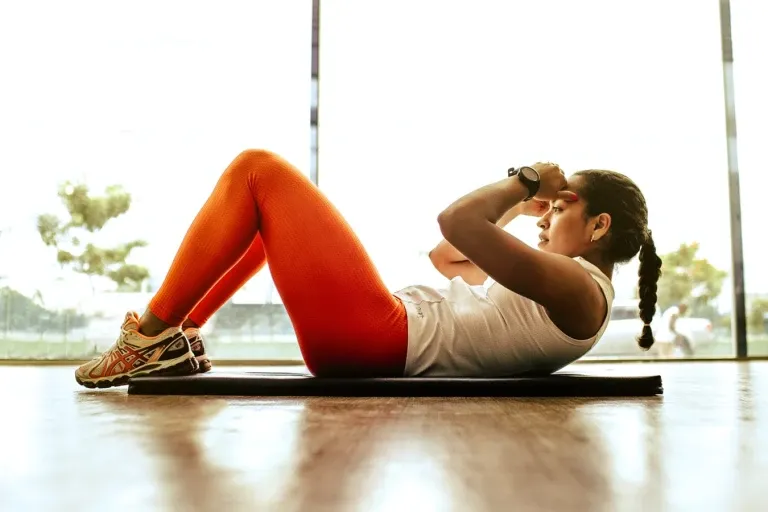
From misinformation about eating carbs to ineffective diets, there are some myths about losing weight that unfortunately a lot of Malaysians still believe. Today, we’ll debunk 10 of the most popular ones so that you don’t waste your time with things that don’t actually work!
1. Losing weight is the same as losing fat
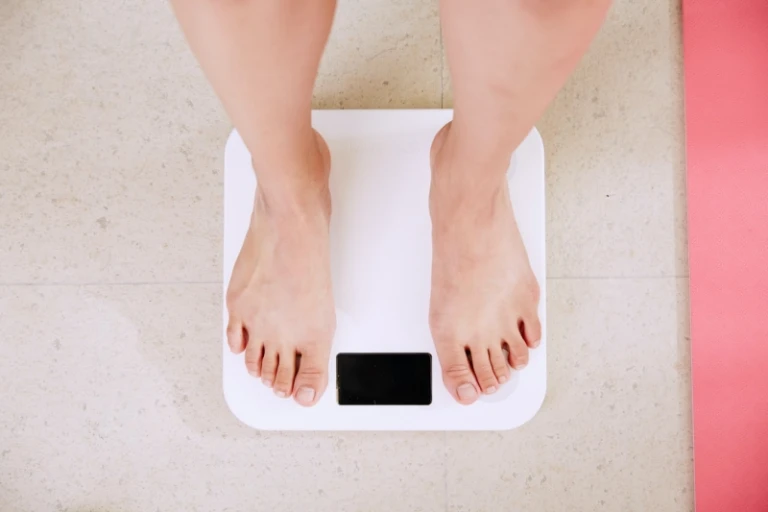
I’m pretty sure most of us begin our weight loss journey this way: we weigh ourselves on the scale after a long time, have a mini heart attack when we see the number, then vow to lose weight. We change our diet, start working out, and then we weigh ourselves again the next day. Voila! The number has dropped! That means whatever we were doing helped us to burn fat, right? Sorry, but nope!
While it’s true that you technically lost weight, you likely didn’t lose any fat; you lost water weight. According to Registered Dietitian (RD) Abbey Sharp, founder of Abbey’s Kitchen, water weight is basically extra water that clings to your tissues, joints, and body cavities. This extra weight can be eliminated by sweating and a proper diet.

However, you will most likely immediately gain it back when you drink or eat. In fact, you can even gain water weight by exercising! That’s because when you exercise, you put stress on your muscles which lead to micro tears in the muscle fibres. This leads to your body retaining more water as the muscles heal. Ultimately, this leads to daily fluctuations (weight going up and down).
A few days ago, I decided to make a large salad for dinner, filled with tomatoes, cucumber and lettuce, all vegetables that contain a high amount of water. I weighed myself before bed and again the next morning. Apparently, I lost 1.2kg overnight! But as I said, you’re only losing water weight and not actual fat.
Summary: Losing weight is not a linear process. Your weight will likely go down on some days and up on others. Instead of weighing yourself every day, do it once a week to better gauge your progress.
2. Eating carbs will make you gain weight

This is easily one of the most commonly touted “secrets” for weight loss. From KETO diets to low carb- high protein diets, there are many trendy weight loss regimes that religiously champion this. However, does eating carbs really cause weight gain? The short answer is no.
You see, while limiting your intake of foods like rice and noodles will certainly be quite beneficial, it’s impossible to avoid carbs altogether. As RD Jim White puts it, cutting out carbs altogether can actually cause you to GAIN weight. A lot of vegetables and fruits like bananas and sweet potatoes are actually carbohydrate-rich foods, and cutting these out puts you at risk of fibre deficiency, which, as explained above, can impact your body’s ability to eliminate water weight.
But, you don’t necessarily need to completely eliminate rice and noodles to lose weight either. Rather than focus on limiting the intake of certain food groups, focus more on portion control. Basically, the key to losing weight is to eat a caloric deficit (which we will talk more about later).
Summary: Carbohydrates are an essential part of your diet. While it’s beneficial to cut down on some carbs like rice and noodles, cutting out carbs completely can be detrimental to your health and even cause weight gain in some cases.
3. Late night snacks will affect weight loss

I’m sure you’ve heard this before: late night snacks cause weight gain. However, according to a study published in the American Journal of Clinical Nutrition, that’s not completely true. In essence, it depends on what your “late night snack” is.
The reason late night snacks are linked to weight gain is because most suppers consist of high-caloric foods. In Malaysia, the most common food we eat for supper include McDonald’s, mamak etc. And since we go to bed right after eating them, our body can’t burn the extra calories, which eventually leads to weight gain.
However, if your late night snack consists of healthy choices, it’s unlikely to have any impact on your weight loss.
Summary: Feel free to indulge in a late night supper if you’re hungry. Just pay attention to what you’re eating.
4. Fat makes you fat
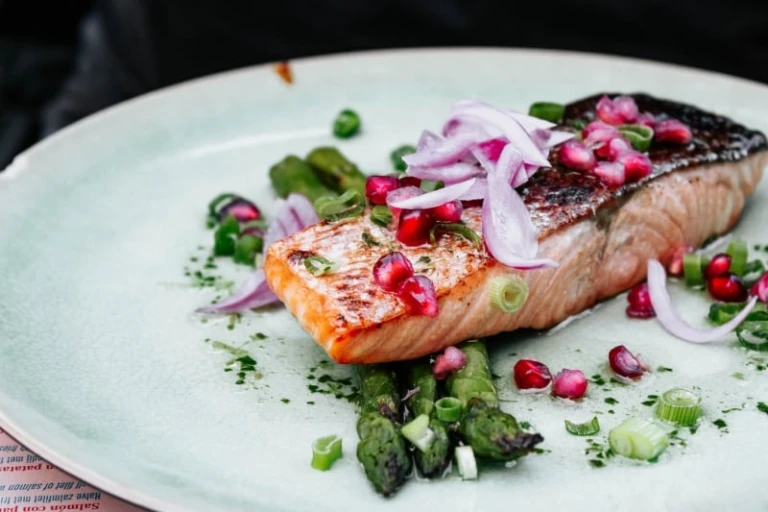
If I eat fat, it will make me fat. On paper, it sounds logical, right? But what if I told you that certain fats can actually help you lose weight? Of course, it’s essential to cut down on (or cut out completely) saturated and trans fat (that means fast food, potato chips, processed meats etc.). However, according to dietician Isabel Smith, there are also healthy fats like nut butters and avocados that boost satiety (makes you feel full) and fuels weight loss.
They also promote brain health, improve your skin condition, and contain anti-inflammatory properties, which makes them good for a post-workout meal. My personal recommendation? Grilled salmon (fish oil) with asparagus.
Summary: Not all types of fat are unhealthy and lead to weight gain. Certain fats like those found in nuts, avocados, olive oils and fish can actually help you lose weight.
5. A detox or juice cleanse is a quick way to lose weight

Oh boy, I’m going to trigger some people with this one, aren’t I? While detoxes and juice cleanses are one of the most popular fitness fads of the modern era, many dieticians and health professionals actually don’t buy into them, and for good reason!
For one, “detoxing” your body is like using a bar of soap to wash another bar of soap because it fell on the floor. As long as your liver and kidneys are functioning properly, your body is already detoxing itself! Of course, your organs will appreciate some help occasionally too, but that should come in the form of a consistent, healthy diet, not some expensive tonic.
Apart from this, juice cleanses to promote weight loss can actually be quite unhealthy and counterintuitive, according to clinical nutritionist Ilyse Schapiro. For one, some of the juices contain a high amount of liquid sugar, which will cause a spike in blood sugar levels and lead to weight gain. Another potential problem is that by depriving yourself of food, your body goes into conservation mode. Basically, it will hang on to any excess nutrients it can find, which ultimately can even lead to weight gain in the long term.
Summary: A healthy body is well capable of detoxing itself! Instead of using juice cleanses hoping to quickly lose weight, opt for a steady, healthy and consistent diet.
6. You can get a chiseled six-pack by doing targeted exercises for your abs

I must admit, I was guilty of this for the longest time. But here’s the truth: even if you do 1,000 crunches a day, you’re not going to “get” abs. That’s because the notion of getting abs is a falsehood. We already have abs! We just can’t see them because they’re covered in excess layers of fat!
There’s also no specific exercise that targets belly fat either! Crunches and ab exercises can strengthen your core and tone the muscles, but the only way to make your abs visible is to lose overall weight. And to do that, you need a good diet and consistent exercise. I personally recommend tabata (for beginners), but there are also other exercise regimes out there that can help.
Summary: Stop torturing yourself with crunches. It takes a proper diet and a holistic approach to get six pack abs.
7. No pain, no gain
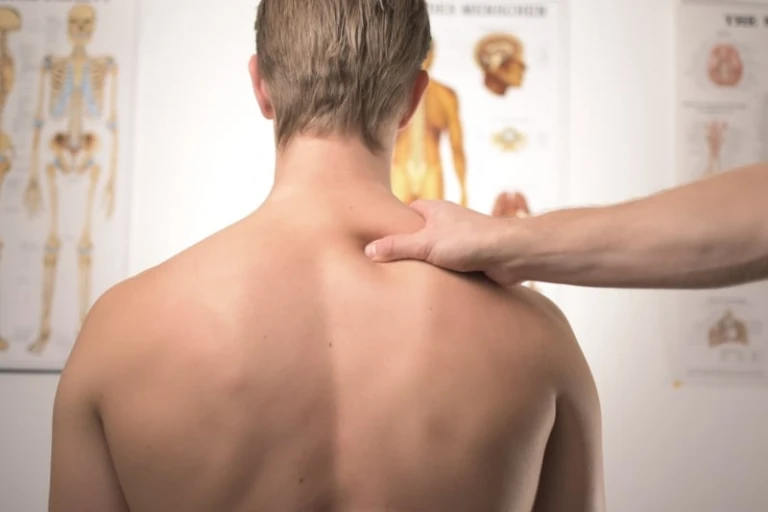
It’s an expression as old as time in the fitness world. But while it is normal to feel sore after a really intense workout, feeling pain is often an indication that something has gone terribly wrong. It could range from bad posture to a light sprain or even a major muscle injury!
But even beyond that, just because you feel sore doesn’t mean you’re improving. If I did 100 bicep curls using a 1kg dumbbell, I’ll probably feel sore from the repeated muscle movement. However, in terms of progress, it wouldn’t mean any significant progress.
Summary: All in all, listen to your body. If something feels wrong, consult your doctor or a fitness expert.
8. Doing weight training will always bulk you up

A lot of the girls I know simply refuse to do any weight training when they hit the gym. Almost all of them think that lifting weights will surely lead to them developing arms like Dwayne Johnson. Now, there is a little bit of truth to this. If you progressively exercise with weights (ie, moving from 1kg to 2kg to 5kg), you will likely bulk up.
However, according to a study published in Medicine & Science in Sports & Exercise, weight training can actually slim you down and give you a leaner appearance. The study found that women who lift weights tend to burn more calories. The key is to understand the difference between muscle gain and toning. If you’re really unsure, simply stick to a slightly lighter weight and see the difference.
Summary: Weight training isn’t just about making you look like The Rock. It also helps tone your muscles and slim you down.
9. I can lose weight by just doing highly intensive workouts
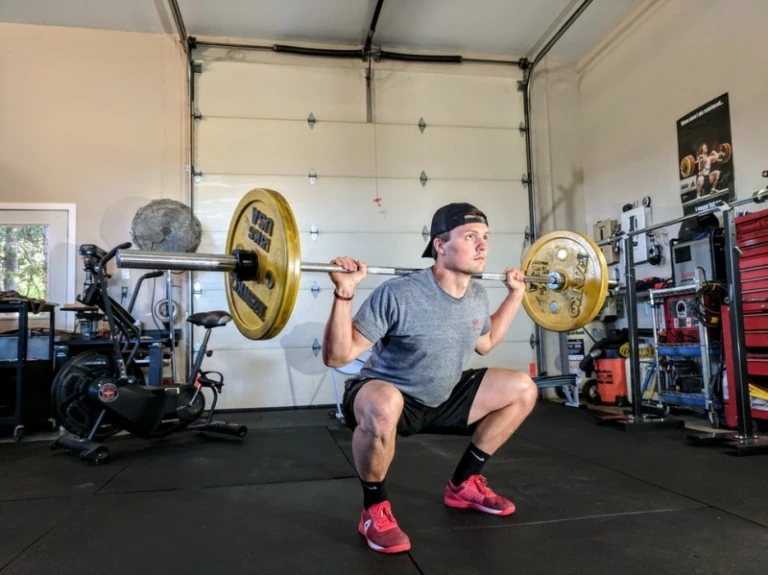
No, no you can’t! There’s actually a lot of science behind this but I’ll try my best to make it easy to understand. First of all, intense workouts like HIIT (High Intensity Interval Training) are extremely good for kick starting your weight loss regime. They are highly efficient fat burners and also helps you build endurance.
However, it’s also important to incorporate low intensity workouts (like jogging or yoga) into your weekly routine too! That’s because intense workouts raise the level of cortisol in your body. Cortisol is a stress hormone that, in large amounts, can actually lead to weight gain.
Summary: It’s okay to switch off “beast mode” every now and then and try out some more relaxing exercises.
10. If I sweat a lot, I’m burning a lot of fat
I’m sure you’ve seen some people say that “sweat is fat crying”. Even though it sounds cool, it’s actually a misconception. As we mentioned earlier, when you sweat, you’re mostly just getting rid of excess water in your body. It’s as simple as that. That’s why we feel thirsty after an intense workout.
However, while we don’t lose fat from sweating, it often correlates with how we actually lose fat. If a workout is so intense that it makes you sweat a lot, it’s likely that it is also making you breathe more heavily. The British Medical Journal states that 10kg of fat turns into 18.4kg of carbon dioxide. That’s right, we literally exhale fat from our body when we exercise!
Summary: Sweating leads to water weight loss. Fat is lost through carbon dioxide.
Bonus: So, basically, if I eat less, I will DEFINITELY lose weight!
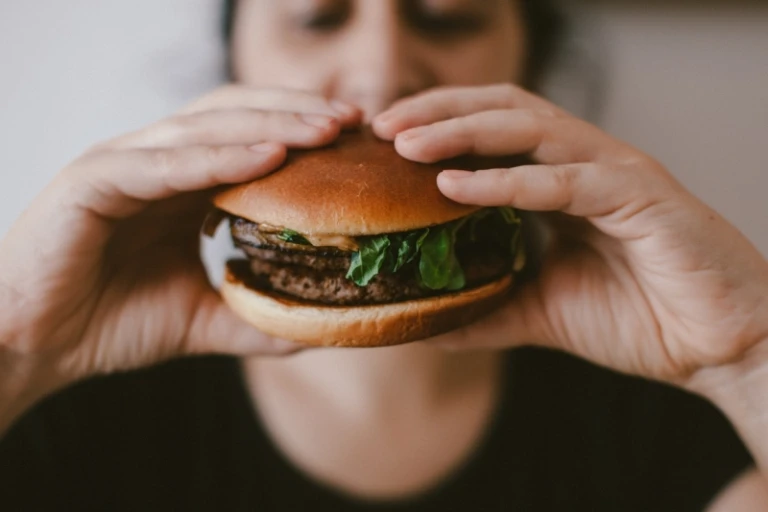
Er…basically, yes, but it’s not always that clear cut. Let’s say you eat 50 Big Macs a day, and now you reduce it to 30 Big Macs a day. You’re reducing your food intake, but you’re likely not going to lose weight.
Now, let’s go back to what we mentioned earlier: a caloric deficit. Basically, eating a caloric deficit means eating less calories per day than what you burn. It’s a tedious process when you first start since you’ll be counting calories a lot. However, once you figure it out, it becomes the most important factor in any weight loss regime.
To start, there are plenty of free mobile apps like that can help you keep track of the amount of calories you’re consuming. If you have money to spare, you can even install more advanced apps that can recommend custom meal plans for you based on your fitness goals and body weight.
However, make sure to not starve yourself to achieve a caloric deficit!
Get fit the healthy way!
And there you have it, 10 fitness myths that most people still believe! Now that you’ve separated fact from fiction, all there’s left to do is to get started on your workout regime and get the body of your dreams!
Published on
About Author
RECOMMENDED READS
本地旅游好好玩! 马来西亚 10个不为人知的仙境 【Pulau Langkawi爆红住宿TOP 8】超高颜值的酒店,照片请来一波! 9月16日。。。约吗?
【Short Escape 必打卡】森美兰远离尘嚣的世外桃源 Airbnb Top 6! 山峦起伏的森美兰州, 有绿意盎然的美景, 成片成片的热带雨林在雨后更加翠绿, 空气更加新鲜! 这里绝大部分的民宿都以贴近自然为特色, 因此有些民宿甚至让你住进没有无线网络的鸟巢, 真实感受远离世俗和尘嚣的滋味。 今天小编推荐几座值得一去的森美兰民宿。 环境幽静空气新鲜的好地方, 千万不能错过!
【冬季篇】日本必去打卡的秘境TOP 10✅ 日本, 是亚洲一个神奇的旅游胜地。 但凡去过一次, 就会上瘾, 然后就会想要探索那里的春夏秋冬。 日本的冬季, 可以达到零下的温度, 甚至有很多越冷越受欢迎的景点。值得一提的是, 日本的冬季集浪漫、 萧条、 迷人为一身。 你也可以趁着冬季来到北海道滑雪, 或是泡一个美美的温泉! 无以伦比的旅行就此开始。
【打卡打爆朋友圈!】雪隆区超高CP的甜品店TOP 7,好吃还不贵! 觉得奶茶太贵, 而且嘴巴还有点馋? 你可能需要的不止是饮料, 而是甜品啦! 很多人听到甜品店都觉得价格肯定超贵, 可是甜点其实也可以很便宜的, 只是看你去哪里吃~ 这里推荐雪隆区必须去的打卡的甜品店, 重点是好吃又不贵, CP值超高, 绝对不会让你钱包大出血!
RECENT ARTICLES
马来西亚那些看起来像纽西兰的地方! 在马来西亚,也能体验纽西兰的美景?
吉隆坡公共交通指南:教你如何像当地人一样玩转吉隆坡! 畅游吉隆坡并不如想象的那么困难!
吉隆坡夜生活指南:12个酒吧和 Club 推荐! 给喜欢喝酒的夜猫子们~
你的 MBTI 类型和属于你的完美旅行目的地! 你的 MBTI 是?
LEGOLAND Malaysia Introduces World's Longest LEGO® Snake & FREE Upgrade to Annual Pass! And a FREE upgrade to an Annual Pass if you purchase a Day Ticket!

